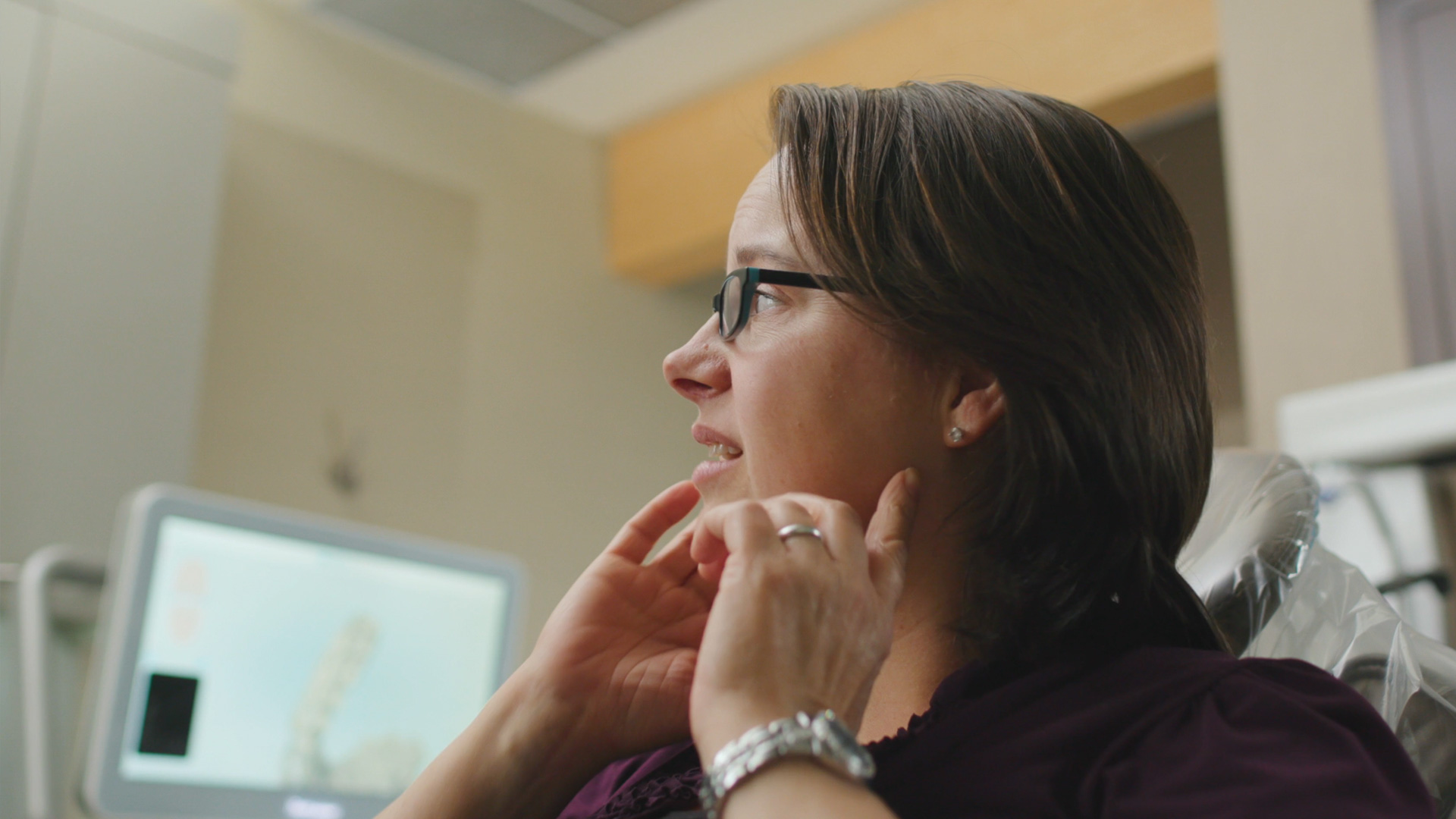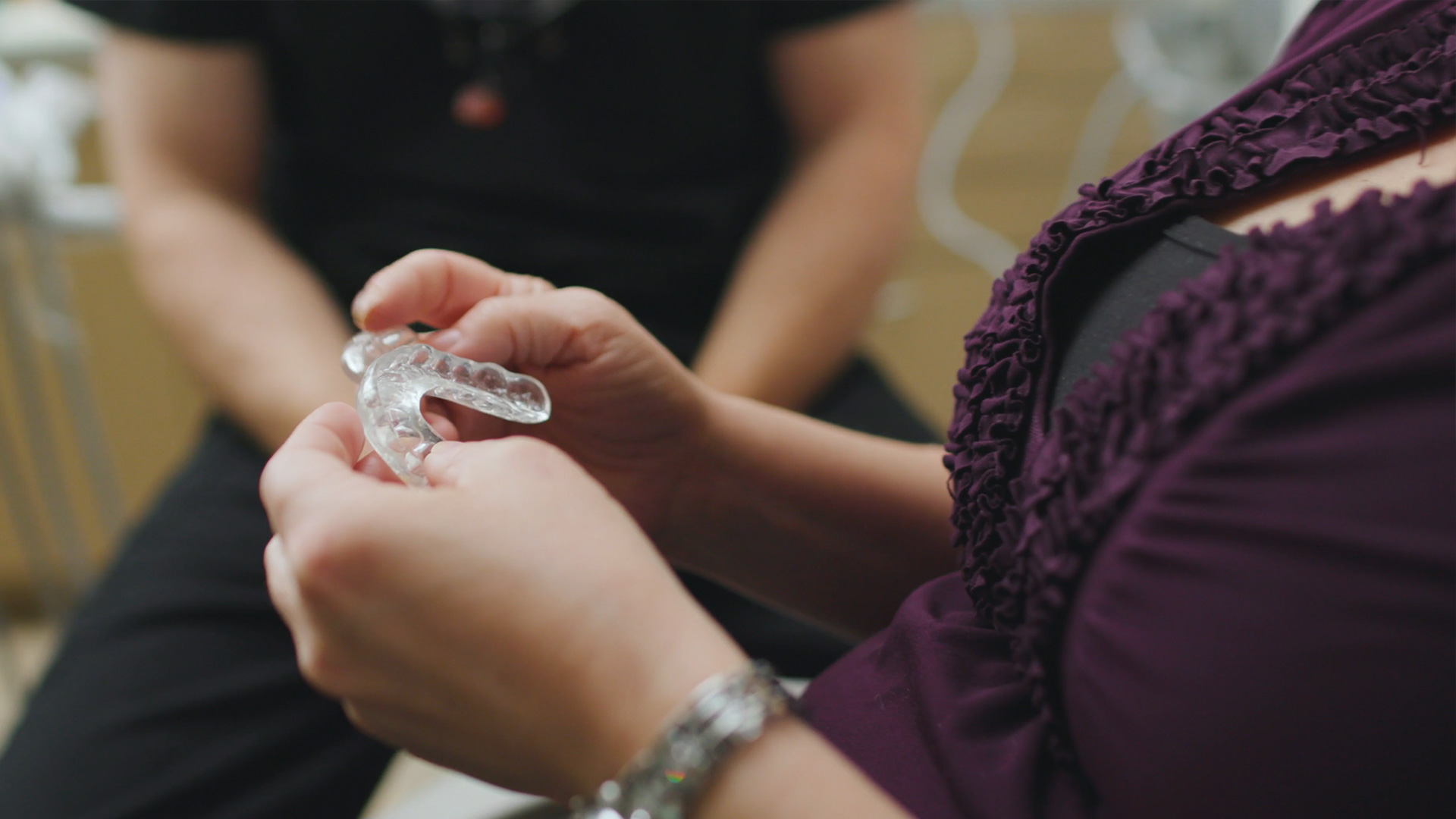TMJ, tooth grinding and tooth clenching are common problems. If you experience jaw muscle pain, jaw joint pain, headaches, sore teeth, or all of the above – then we can help! After a thorough evaluation of your joints and muscles, we will determine what type of therapy is appropriate.
Watch A Quick Video
Dr. Tremont discusses tooth grinding (bruxism) and treatment with a custom nightguard.

What is TMJ?
The temporomandibular joint (TMJ) is a complex joint many people have problems with for numerous reasons. Most TMJ issues can be easily diagnosed and treated effectively over time with the proper care. Once we confirm TMJ, we will determine the best way to treat your individualized problems.
TMJ Treatment Options
To start, we will want to relieve the muscle spasms and any joint pain you are experiencing. There are a few ways to accomplish this: by taking a pain reliever or anti-inflammatory, or by resting your jaw and keeping your teeth apart when you are not swallowing or eating.
In many cases an effective treatment will be to create a splint for you to wear at night. It is a clear plastic appliance (also known as a nightguard) that fits over your top or bottom teeth, keeping your teeth apart and helping the muscles to relax. It will also help you stop clenching and grinding your teeth. There are additional appliances that may be used, including an anterior repositioning appliance that assists in moving your jaw forward, relieving any pressure. Another option may be an orthotic stabilization appliance, which can move the jaw into the correct position. Both of these can work 24 hours a day if needed.

Tooth Grinding Prevention
Some people do not experience muscle or joint pain but they still grind their teeth. Tooth grinding, or bruxism, can be extremely damaging to the teeth. Grinding can cause chipped, broken, cracked, or split teeth. If the patient is not experiencing any painful symptoms, then they often do not realize they are grinding their teeth until the tooth wear is advanced enough that they start to see obvious signs such as “short teeth” when smiling, or chipping of the front teeth. Thankfully your dentist can identify early signs of grinding called “wear facets”. Wear Facets are flat shiny spots on your teeth that are caused by grinding.
Prevention is the best strategy to avoid the damaging effects of grinding. For people that grind their teeth, wearing a bite guard nightly can prevent the need for expensive and invasive dentistry.
Sleep Apnea and Tooth Grinding
Did you know that there is a direct correlation between sleep apnea and tooth grinding? If you have ever been diagnosed with sleep apnea, or if you have trouble getting a good night sleep, then make sure to discuss this with your dentist. For more information on sleep apnea, click here.
TMJ and Tooth Grinding Questions and Answers
Some people grind their teeth so loud at night that their partner can hear it. Others wake up with jaw pain and sore muscles. Signs of teeth grinding may be noted during a dental examination. Your dentist looks for things like flattened back teeth, worn or chipping front teeth, jaw muscle pain, and clicking/popping of the jaw joint. While all of the above do not necessarily mean you’re grinding your teeth at night, there is a high correlation when many of the symptoms are present.
There is a nothing you can do to stop the grinding from happening. Our focus is more on protecting your teeth from any damage. A night guard is a 3D printed, custom made thermoplastic resin that protects your teeth from any night time damage and evens out your bite so the forces are distributed evenly.
While you won’t notice any major problems overnight, many people will notice one or several issues arise over the years. These include jaw joint pain by the ears, cracked teeth, worn and chipped teeth, front teeth that become shorter, jaw muscle pain, and limited range of motion in the jaw joint.




